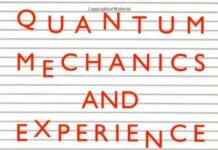
Ebook Info
- Published: 2009
- Number of pages: 192 pages
- Format: PDF
- File Size: 0.81 MB
- Authors: David Z. ALBERT
Description
This book is an attempt to get to the bottom of an acute and perennial tension between our best scientific pictures of the fundamental physical structure of the world and our everyday empirical experience of it. The trouble is about the direction of time. The situation (very briefly) is that it is a consequence of almost every one of those fundamental scientific pictures–and that it is at the same time radically at odds with our common sense–that whatever can happen can just as naturally happen backwards. Albert provides an unprecedentedly clear, lively, and systematic new account–in the context of a Newtonian-Mechanical picture of the world–of the ultimate origins of the statistical regularities we see around us, of the temporal irreversibility of the Second Law of Thermodynamics, of the asymmetries in our epistemic access to the past and the future, and of our conviction that by acting now we can affect the future but not the past. Then, in the final section of the book, he generalizes the Newtonian picture to the quantum-mechanical case and (most interestingly) suggests a very deep potential connection between the problem of the direction of time and the quantum-mechanical measurement problem. The book aims to be both an original contribution to the present scientific and philosophical understanding of these matters at the most advanced level, and something in the nature of an elementary textbook on the subject accessible to interested high-school students. Table of Contents: Preface 1. Time-Reversal Invariance 2. Thermodynamics 3. Statistical Mechanics 4. The Reversibility Objections and the Past-Hypothesis 5. The Scope of Thermodynamics 6. The Asymmetries of Knowledge and Intervention 7. Quantum Mechanics Appendix: Gedankenexperiments with Heat Engines Index Reviews of this book: The foundations of statistical mechanisms are often presented in physics textbooks in a rather obscure and confused way. By challenging common ways of thinking about this subject, Time and Chance can do quite a lot to improve this situation.–Jean Bricmont, ScienceAlbert is perfecting a style of foundational analysis that is uniquely his own…It has a surgical precision…and it is ruthless with pretensions. The foundations of thermodynamics is a topic that has accumulated a good deal of dead wood; this is a fire that will burn and burn.–Simon W. Saunders, Oxford UniversityAs usual with Albert’s work, the exposition is brisk and to the point, and exceptionally clear…The book will be an extremely valuable contribution to the literature on the subject of philosophical issues in thermodynamics and statistical mechanics, a literature which has been thin on the ground but is now growing as it deserves to.–Lawrence Sklar, University of Michigan
User’s Reviews
Reviews from Amazon users which were colected at the time this book was published on the website:
⭐A deep, yet relatively simple, book about possible interpretations of the elusive character of the concept of time. Try to explain it – it is surely not simple and open to various interpretations. Time has many descriptions – in mechanics, in thermodynamics, in statistical mechanics, in quantum theory and in special and general relativity and cosmology. Relativity tells us that the very existence of time is not obvious, yet timeis one of the parameters that enable us to write accounts of the experience of ‘change’ we all feel in our daily life. So, the issue is fascinating, and David Albert, a prominent physicist and philosopher, introces the subject in a very deep, yet lively, way.
⭐To my mind, this work is indispensable for everybody, who considers her/him/self a natural scientist … What is the true nature of time ? What is the true nature of chance (and, therefore, what is then the probability) ? …
⭐Good product and good service.
⭐I couldn’t stand to see this book with such poor user reviews. One can see the academic reviews are stellar. This is the best book on time that I have ever read. It is not pop-science, it is an academic work on the foundations of physics and time. As such, it is not an easy book to read, despite the fact that it is well-written and anyone should be able to follow it if their mind has not atrophied. It is not easy because it presents in almost full glory all the problems most physicists ignore with respect to questions concerning the role of time in modern physics. I gave this book four stars because I thought it was missing (2) things. One – epistemic motivation for the past hypothesis, Two – Convincing arguments that QCD time-reversal symmetry breaking doesn’t really matter for the questions discussed. Anyone who thinks this is a poorly written book should survey the other literature on the topic for comparison. Dr. Albert has tackled a difficult subject with a degree of intellectual integrity and honesty uncommon in physics so don’t complain if you have to think because that is the purpose of the book. I have read this book repeatedly and learn something new almost everytime I open the book. I thouroughly disagree with his attempted resolution of time-reversal invariance and entropy increase through the past hypothesis, in particular since the epistemic motivation for the past hypothesis admits necessarily of no non-circular verification. I still maintain he has done an excellent job in writing this book and the poor user reviews should not prevent anyone from reading it. Expect to read it slowly at least twice and to have to think and you will know more about time than most physics PhD’s.
⭐David Albert has a real problem explaining himself- not just in this book, but in person when trying to teach the book. Everybody has noted the main problems with the book- the man cannot write his way out of a wet paper bag. And yet, he refuses to change or improve his writing (After reading the first exasperating chapter of a new book he is currently working on I realized some people cannot improve with practice). This is partly due to the fact that he writes like he thinks; as if he is thinking out loud in a total stream of consciousness which he expects you to be experiencing as well. In fact he really does expect you to be having the same train of thought as him, as if his next sentence is the fulfillment of what you were already thinking. This is simply not the case.His methodology is to build up a theory as being true, then decimating it by pointing out what seem (to him) to be obvious and inherent absurdities, only to end up reasserting the theory as being actually true due to some caveat. Once you finish his mental acrobatics you find that the theory is correct according to Albert because it is trivially true. As has been said in most of these reviews, his writing tends to obscure the nature of his project so that one is not sure whether anything substantive has been said. So what is the book about anyways?Albert wants to show that statistical mechanics is an incomplete science that fails on its own. What it needs is a strong philosophical foundation with a metaphysical theory that validates its project. Albert’s main problem with statistical mechanics is its untenable epistemology, it assumes its science as a priori and analytically true. This Albert rejects; but he still thinks that statistical mechanics can get it right with the addition of a metaphysical theory- the Past-Hypothesis. Now while the Past-Hypothesis stands alone as a great contribution which makes Time and Chance an actual important work, it is not uncontroversial or unproblematic. Time and Chance stands and falls on the Past-Hypothesis and the philosophical explanatory power it provides for validating the statistical mechanic project and the laws of thermodynamics.But whether the Past-Hypothesis is true or not ends up becoming a moot point. You see, Albert is a neo-Humean and despite the fact that he writes with what seems to be a scientific realism, the Humean in him will not let that be the case. He is over awed by David Lewis and Humean Supervenience. So, at best, even though he seems sincerely dedicated to physics and philosophy, he ends all speculation with the caveat that at best these are all useful fictions.This seems to me very puzzling, given that his main criticism of statistical mechanics, sans the Past-Hypothesis, is on its epistemology. Statistical mechanics fails on a epistemic level without the metaphysical Past-Hypothesis to salvage it. And yet, the whole project of the book troubles Albert epistemically, as a neo-Humean, which is why, in the end, the actuality of his project (though presented as realist) is operationalist in that it allows humans to survive in an evolutionary sense but only as a tool peculiar to our phenomenology given our poor epistemic state of affairs, that is, it’s all a useful fiction for survival: explanatory it may be but it is still a fiction.That said there is still the novelty of the Past-Hypothesis, which deserves critical attention. It is for that reason that you should buy this book. It helps to reread it several times from which you come away with another understanding of Albert’s methodological mess every time, which in turn lends itself to a greater appreciation of this book’s importance.
⭐I am a recent graduate from an undergraduate physics program, and I’ll admit that I had to struggle through this book. Albert’s writing style is difficult to get past sometimes, and the content of the book is pretty difficult in itself. Having read his other book on Quantum Mechanics too, I found myself asking a question during this book that I also asked myself during that one: for whom is this book written? Some of it seems to be aimed at people who never have even heard of the laws of thermodynamics, much less the statistical formulation of the 2nd law. But then, only a few pages later, he offers some quite specific criticisms that may go over the heads of all but those who have worried about related issues for some time.Even though this makes for reading that is sometimes a bit choppy, I think that the great content of this book makes the struggle worth it. Albert goes straight past a lot of the math and digs straight into the philosophical problems that his topic affords. From there, he’s not afraid to venture into some strange territory. Do we need a new law of nature to explain what’s going on? Yes? Well, then, Albert will postulate a new law of nature. Boom. That’s pretty inspiring, though perhaps not for the faint-hearted who wish to read a book of simple popular exposition.
⭐there are sooo many books about the MYSTERY of time’s directedness and all I’ve started to read were trivial, vacuous and a disappointing loss of time. this one is significantly different.. the author has a hypothesis to tell and he even knows how to write! i really recommend this book!
⭐A must read if you have in interest in the arrow of time. And who hasn’t? If you don’t care, it’s actually a good read to get you mind changed.
Keywords
Free Download Time and Chance in PDF format
Time and Chance PDF Free Download
Download Time and Chance 2009 PDF Free
Time and Chance 2009 PDF Free Download
Download Time and Chance PDF
Free Download Ebook Time and Chance

